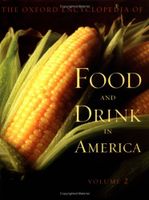Advertisement
The Diminishment of Pies
Appears in
Published 2004
The hold that pies had on America’s diet began to loosen in the 1870s, coinciding with a growing social concern for the poor and working class. The new science of nutrition, especially as it was embraced by Wilbur O. Atwater, a chemist on the faculty of Wesleyan University, set about attacking the poverty and social ills afflicting both slum dwellers and the hordes of immigrants flooding into the cities by trying to change how and what the populace ate. Atwater argued that much of what the underclass suffered could be mitigated if they turned away from the prevailing American diet—which was based on too many carbohydrates, especially in the form of sweets—in favor of a diet rich in protein. His ideas materialized in the New England Kitchen Movement, which began setting up communal kitchens and conducting cooking classes in settlement houses. Unfortunately, the movement’s menu was based on bland soups, chowders, and beans, and even the hungry poor could not see the attraction. The movement fared even worse with immigrants when it attempted to steer them away from native foods toward more insipid dishes.


